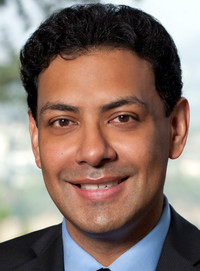Friday, December 18, 2015
How ZendyHealth Is Adding Price Transparency To Healthcare

Anyone who has visited the doctor or a hospital knows that what you will pay—whether yourself or through insurance—is a complete and total mystery. Is there a way to use technology to help make it more clear what medical procedures cost, and help patients—and doctors—better manage expectations? Los Angeles-based ZendyHealth (www.zendyhealth.com) thinks it has figured out a way to help both patients and doctors by helping connect patients to doctors and specific procedures, with upfront pricing. We spoke with Dr. Vish Banthia, CEO and founder of ZendyHealth, to hear more about how his company I trying to bring price comparison to common medical, dental, and cosmetic procedures.
Explain what your startup does?

Dr. Vish Banthia: ZendyHealth is an online platform that empowers patients to get quality, affordable health care, including health, dental, and aesthetic procedures. It's an on-demand, name your own price service. Picking your own price allows patients to get services from prescreened, quality providers near them.
What's your background, and how did you start the company?
Dr. Vish Banthia: My background is as a double board certified surgeon, who has been in practice for ten years. The startup essentially helps deal with issues and pains I had seen for both patients and providers. I had actually tested a similar model, in an offline way, before starting this, and saw positive results. At every step of the process, you have to do test, before you decide to go on to your next test. I had seen positive results with our on-demand tests to justify the next step in expanding the platform, which is essentially what we've done. What we have now, is ZendyHealth, which lets you pick your own price for health care services.
You mention pains and issues, what are those?
Dr. Vish Banthia: No matter what environment I've been in, patients are always having issues paying their medical bills. People are constantly negotiating, whether or not they are covered or are supposed to be covered by insurance, and especially things that are cosmetic or dental in nature. This is actually becoming more oof a problem now, because patients are having to pay more out of pocket for services which traditionally had been covered by health insurance, mainly in the form of deductibles. There are many patients who have deductibles of $3000 to $5000 before their insurance kicks in. That means you start seeing similar behavior to patients who have to pay out of pocket, which is you see them shopping around, looking for the best value, just like they would when shopping for a car, a house, or goods and services in any other industry.
How is your company backed, financially?
Dr. Vish Banthia: We've raised a seed round, and we have investors who are physicians themselves, an insurance company CEO, as well as some executive from Facebook and Twitter. Some of the investors have personal experience in some form and fashion with health care, and understand the need for this. It's sort of an online price shopping tool for various services, which is highly relevant to patients.
Why did you decide, as a physician, to become an entrepreneur instead?
Dr. Vish Banthia: Essentially, what we have here is a massive problem with the health care system overall. Most people I have spoken to, whether an investor, an entrepreneur, or in the community, believes the health care system seems to be broken when it comes to price. An example, personally, is we just had a baby six months ago. We received two bills, one for $6000, and another for $10,000, for a total of $16,000—with absolutely no level of knowledge in terms of price transparency beforehand. The health care industry is completely opaque when it comes to pricing and pricing data. There's a complete lack of pricing transparency. The consumer doesn't have educated information on what they might be getting into and the costs when they enter the health care system. The problem is massive and universal. Because it's such a significant opportunity, I decided to focus on this, as opposed to practicing full time.What's the biggest thing you've learned so far in running your startup?
Dr. Vish Banthia: I think there a lot different hings I have learned. Startups are incredibly challenging. The one thing I have learned, is to be data driven, and really test your models and hypothesis before moving on to the next step. If you don't test things before you invest lots of money, you'll lose a lot of money. With a startup, you're also putting out a new fire every single day. There are lots of ups and downs, and lots of unexpected events on a daily basis. There's no particular thing that stands out, except, if you're going to have a startup, it's a big, big challenge no matter how big the opportunity is. Nothing is easy.
What's next for you?
Dr. Vish Banthia: We're looking to expand, not only in terms of geography, but also to expand internally. We're looking to expand our developer team, ass well as our acquisition team. We're seeing growth month over month, and as a result, we need to look at those expansion areas. We're also getting demand from patients for service we don't yet have on the platform, and requests from physicians who would like to offer up services not currently on our platform, things like colonoscopies, Lasik, vasectomies, and a whole host of other standardized services.Thanks!